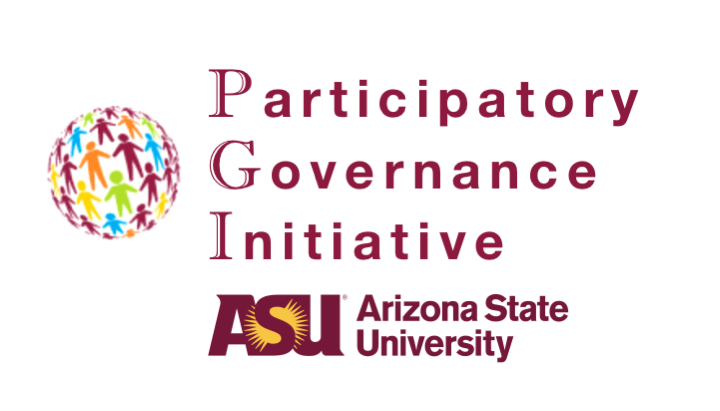Contact
Daniel Schugurensky, Director
Tara Bartlett, Associate Director
Jiho Kim, Associate Director
Address
School of Public Affairs, Watts College of Public Service & Community Solutions
411 N Central Avenue, Suite 400
Phoenix, AZ 85004-0687

Daniel Schugurensky, Director
Tara Bartlett, Associate Director
Jiho Kim, Associate Director
School of Public Affairs, Watts College of Public Service & Community Solutions
411 N Central Avenue, Suite 400
Phoenix, AZ 85004-0687

The mandate of the Participatory Governance Initiative (PGI) at Arizona State University is to promote excellence, collaboration, and innovation in participatory governance research and practice.
PGI is a university-wide interdisciplinary space that aims to bring together academics, students, elected and non-elected government officials, community members and practitioners interested in the theory and practice of participatory governance. Special attention is paid to the examination of emerging trends and innovative experiments around the world that are relevant to the realities of governance and public engagement in the 21st century.
The Participatory Governance Initiative is devoted to undertaking teaching, capacity building, research and dissemination activities aimed at the study and promotion of participatory democracy initiatives, particularly in local governments and educational institutions.